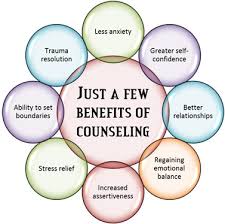What to Expect in Counseling

Before seeing a counselor, give thought to what is going on in your life right now. Have a clear goal or objective in mind. What would you like to see different or change?
Kick The Tires
Not all counselors are the same. Counselors differ in approach, licensure, personality, and specialties. Do you have preferences? Male vs. female, older vs. younger, ethnicity, LGBTQ friendly, faith based or ease of office location are all factors to consider. Would you benefit from a counselor that assigns tasks, homework, reading between appointments? Most counselors have a website that offers client’s information about them personally and professionally. Seek advise from trusted individuals that have had counseling.
The First Appointment
There will not be sweeping results from your first visit. There will likely not be a “eureka” moment and chances are you won’t feel significantly better. Don’t be discouraged! Much time is spent filling out new client paperwork. There will likely be many questions about your life up to this point as well as questions about your family, employment history and personal history. The counselor will explore current symptoms and how you are functioning on a daily basis. The therapist may ask about your sleeping/eating habits, mood, ability to focus and concentrate. This information gathering may be difficult to discuss, hard to bring up or feel like a waste of time but it is essential in helping the therapist fully understand your concern(s) and develop a plan with you to help. You will develop goals and objectives for treatment. Before the end of the initial appointment, your counselor will likely review frequency of future appointments and identify after hours support (e.g. on-call availability, emergency resources).
The Second Visit and Beyond
Expect the real work to begin at session 2-3. Goals and objectives have been identified and discussed. Your participation in counseling matters. Counseling is not a bystander sport. Its’ an interactive process where your questions, thoughts and willingness to be open leads to progress. Be honest and ask questions. Telling the counselor what you think she/he wants to hear won’t help you in the long run. If there is
something you don’t understand don’t be afraid to ask for clarification or for another explanation. Make an honest effort to hear your counselors feedback. Good therapists understand that positive change happens with the right proportions of support AND challenge.


